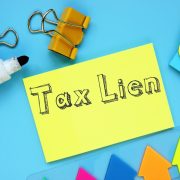An ERISA Primer – What You Need to Know About ERISA Retirement Plans
ERISA stands for “Employee Retirement Income Security Act of 1974.” This was a federal law passed to encourage Americans to save for their own retirement security, as well as to provide a framework for employers to establish and contribute to employer retirement plans.
ERISA also established the IRA as we know it, though the Roth IRA and the 401(k) plan both came later.
This federal law establishes a number of minimum requirements for employers who want to sponsor retirement plans for their workers.
Requirements for Plan Sponsors
- Plan sponsors must file annual reports with the IRS.
- Provide a “summary plan description” and other basic communication documents to plan participants.
- Compliance with nationwide standards for funding, vesting and eligibility. For example, company senior management cannot set up plans to benefit themselves exclusively and exclude rank-and-file employees. These provisions are called “non-discrimination” rules: Benefits must extend to ordinary workers. That is one of the conditions of favorable tax treatment.
- Fiduciary responsibility: Plan sponsors must manage the plan solely in the interests of plan participants. Fiduciary responsibility requires the utmost in good faith and fair dealing. Self-dealing with ERISA plans, such as using plan assets to provide operating capital for the company or to fund executive bonuses, is not allowed.
- ERISA plan sponsors must maintain procedures for claims and appeals of denied claims.
Carve-outs
Not all workplace benefit plans are ERISA plans. Congress carved out certain plans, such as non-qualified executive compensation. When you hear the term “non-qualified,” it generally refers to one of these plans.
Also, an IRA is not considered an “ERISA plan” or a “qualified plan,” because they are individual plans, not employer plans.
- Solo 401(k) plans (plans with no employees besides a business owner and his or her spouse).
- Section 403(b) plans sponsored by private tax-exempt organizations – provided the employer makes no contributions, and the employer’s involvement with the 403(b) is limited to administering employee contributions.
- Plans sponsored by government and religious organizations.
- The federal Thrift Savings Plan, for federal employees, including military members.
- 403(b) plans for public school employees, religious organization employees.
- Section 457(b) plans.
- Non-qualified plans.
Small business retirement plans
Certain small business retirement plans, including SEP-IRAs and SIMPLE IRAs, are exempt from most ERISA requirements. They are covered under ERISA but were established by Congress to be much simpler and easier for small businesses to administer than full-blown ERISA plans. So, these plans are not subject to the same administrative burdens as most ERISA retirement benefit schemes.
Benefits of ERISA plans
While ERISA imposes some significant administrative burdens, ERISA plans also have some important benefits. For example. ERISA plan assets are generally exempt from the claims of creditors.
Assets in non-qualified executive compensation plans, for example, would be subject to the claims of the employers’ creditors, if the company had to declare bankruptcy. The employer bears a substantial risk of loss in that event. Otherwise the contribution would be taxable!
If the employee had contributed to a 401(k) or SIMPLE IRA plan instead, the asset would be exempt from the claims of both the employers’ and the employee’s creditors, even in the event of bankruptcy.
ERISA plans also provide more protections to plan participant spouses than non-ERISA plans.
Interested in learning more about Self-Directed IRAs? Contact American IRA, LLC at 866-7500-IRA (472) for a free consultation. Download our free guides or visit us online at www.AmericanIRA.com.








